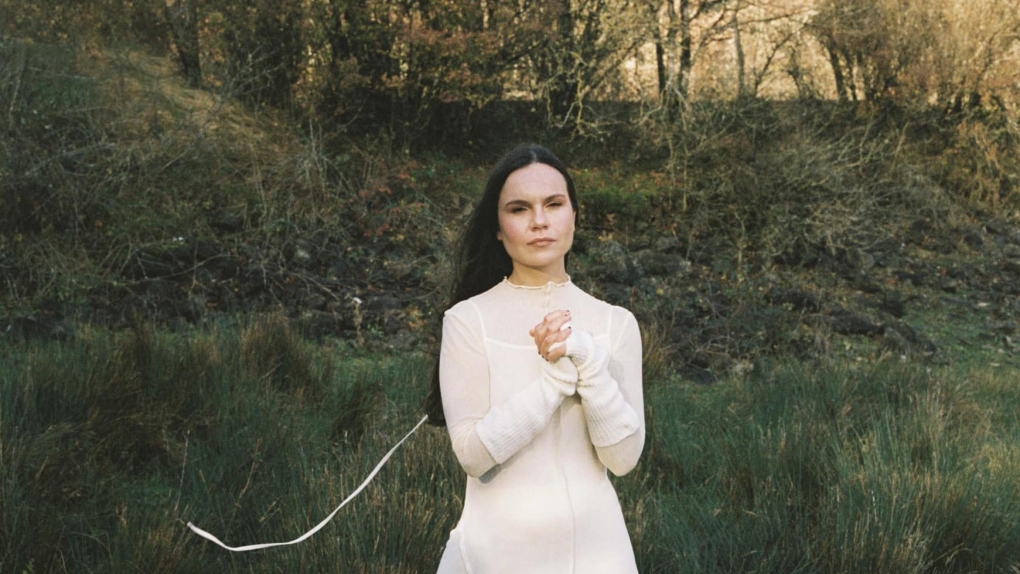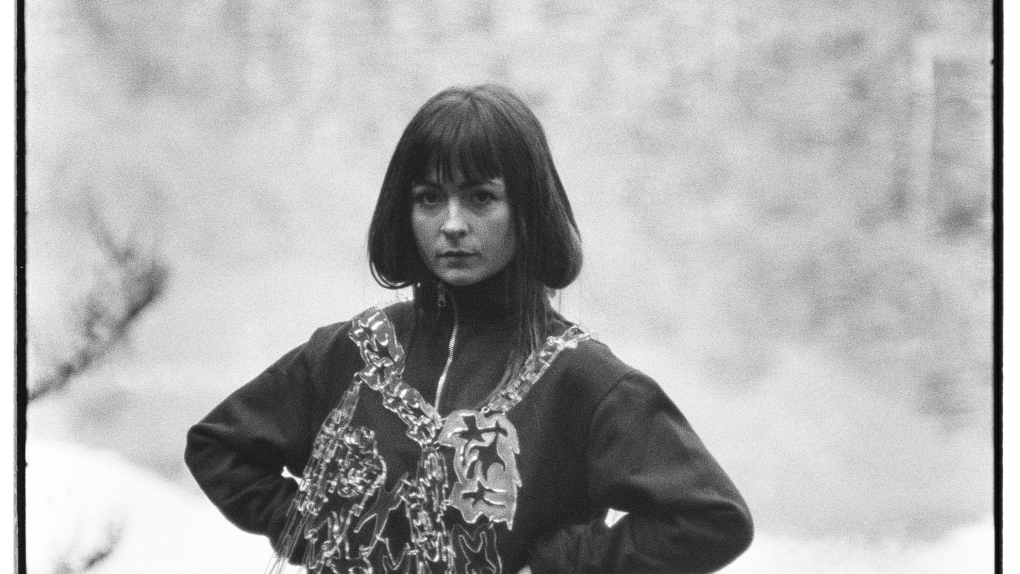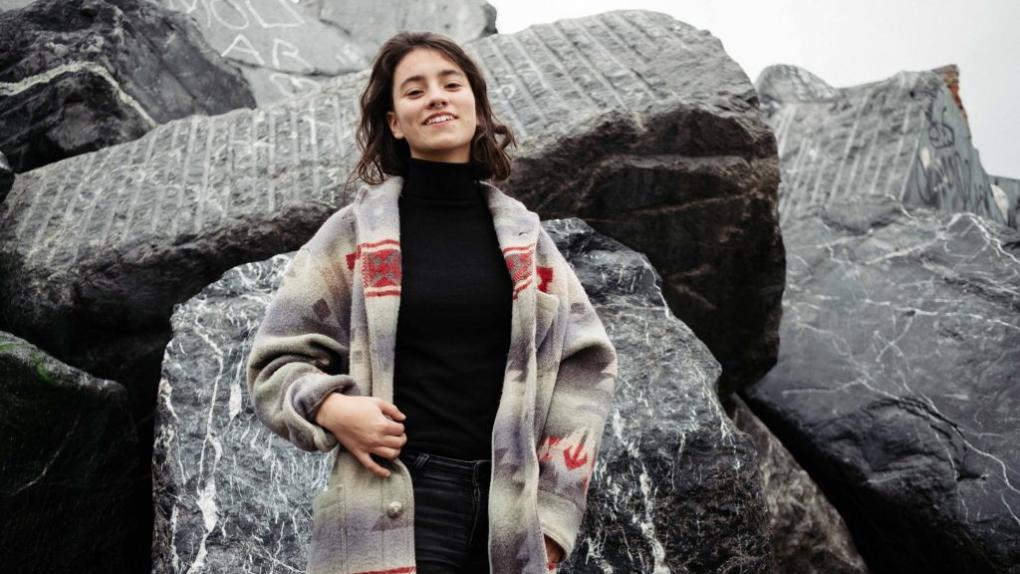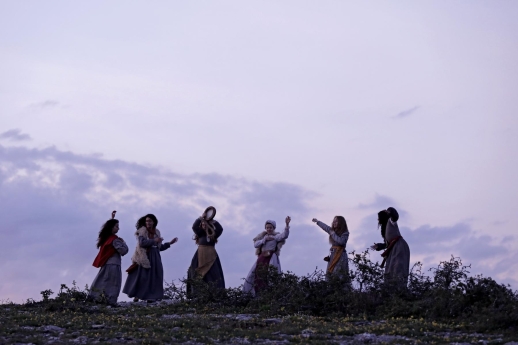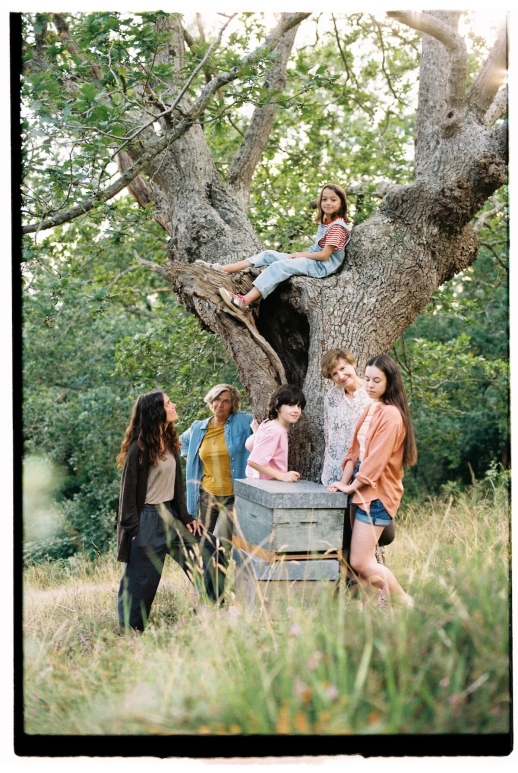Izaro, Olaia Inziarte and Verde Prato are charting the path for a fresh wave of Basque pop, embracing new trends while staying true to their commitment to quality and depth in their music.
Polyglot and unfettered: how these Basque artists have conquered people’s hearts
17 May 2024"Once it starts, you can´t stop, and it has already started." In 2018 Izaro Andrés Zelaieta (1993, Mallabia) wrote this on her Facebook wall. Those were the days of Eason, the album where the Basque singer-songwriter declared her love for Donostia, singing in Basque, Spanish and English. That was her second album, where the magic of an artist with boundless potential started to take shape. With every success, her motivation only grows. She never backs down, raising the bar with each new release. Izaro opened a window in the Basque music scene, and her light has managed to pierce through the undergrowth and touch people’s hearts. With her albums Limones en invierno (2020) and Limones de oro (2022) she solidified her near-star status. At the end of last year, Izaro released her fifth LP: Cerodenero, a self-produced, diverse, ambitious project (mixing pop, folk and electronica) in which she does it all – compose, sing and dance.
Izaro´s is perhaps the most talked-about among a group of Basque soloists – some up-and-coming, others already at the forefront – with certain things in common. Most of them embrace new trends without forsaking their roots, and they all sing in Basque. In an act of artistic freedom, they break down the barriers of stylistic and linguistic prejudices. Together with Izaro, already at the top, these four female artists are setting a new course in Basque pop with their songs and concerts.
Verde Prato
Who is she: Ana Arsuaga (Tolosa, 1994) spearheads a project that breaks the mould with its experimental approach. Having studied Fine Arts in Bilbao, Arsuaga rose to prominence in the music scene with an obscure synth-wave and post-punk group called Serpiente. The three-woman group released their first EP in 2017 and disbanded shortly after their second LP, Krisanteilu. Arsuaga has surprised everyone with her solo career by seamlessly blending tradition and innovation in a concoction that mixes Basque folklore, a solemn demeanour, a sense of mystery reminiscent of a David Lynch film, and urban and Latin rhythms. Verde Prato is one of a kind.
What she brings: to begin with, a magnetic voice that seems to float above the instruments. Minimalist, exciting, sensual staging, calculated to the millimetre. Verde Prato earlier defined her music as Basque Radical Pop, in an express reference to the Basque Radical Rock (RRV) movement that shaped our society in the 1980s. Between 2021 and 2023 she released two seven-track mini-LPs (Kondaira eder hura and Adoretua), one EP in which she covers old glories likes the bands Kortatu and Hertzainak, and a handful of singles. In 2024 she took a new direction by teaming up with Andalusian electronic music producer Bronquio. Together they wrote the three tracks on the EP Erromantizismoa.
Olaia Inziarte
Who is she: in a play on words with one of her most popular songs, ´Denak begira daudelaik´, (Everyone is watching), all eyes are on her lately. Olaia Inziarte (Oronoz-Mugaire, 1999) had already demonstrated her talent before setting out on her own. The young musician from Navarra was a member of the rock band Pleura alongside several musicians from the Baztan valley. She also played piano and sang with Chica Sobresalto and contributed as a keyboardist in the folk band Iker Lauroba eta Beste Urtaroan. It was only a matter of time before she embarked on her own project. Her long-awaited debut LP, Lehengo lepotikan burua (2022), is full of personal references while surrounding herself with a colourful cast of artists, from singer-songwriters Petti and Olatz Salvador, to trikitixa player Joseba Tapia and trap musician Hofe (Igotz Mendez).
What she brings: authenticity and sincere lyrics that talk about the suicide of a friend (´Zure mina´) or about defending the less fortunate (´Behe klasekoa´). Social and political commitment are demonstrated in the Basque version of the pro-Saharan song ´Izar polisariar bat,´ performed together with musician Eñaut Elorrieta. Inziarte has been likened to singers of the stature of Billie Ellish, perhaps because of her way of mixing styles (rock, soul, pop, urban music) and creating powerful songs that pierce the mind and soul of listeners. Her music is a catalyst, an invitation to action.
Sara Zozaya
Who is she: after one of her concerts, cult musician Rafael Berrio said: ‘Anyone who hasn’t seen Sara Zozaya on stage yet is in for a great discovery. I promise’ The singer-songwriter from San Sebastian, who died in 2020, was not a man given to praise. And he was right. First with her band Nerabe and then on her own, Sara Zozaya (Donostia, 1995) started with a series of EPs embracing a Nordic minimalist vibe and a clear motto: less is more. She has spent several years crafting her first LP, Nara (2023), which was slow-cooked under the guidance of Biscayan producer and musician Jon Aguirrezabalaga at El Tigre Studios in Bilbao.
What she brings: a crossover of uncommon styles that move between post rock, electronica and even ambient. An innovative outlook and infinite curiosity to explore new sounds and styles. Sara Zozaya´s music is like an antidote to the rush and immediacy that dominate our lives. Her music, subtle and moving, delicately touches listeners, inviting them to submerge themselves in its sonorous nooks and crannies. Evolving is her hallmark: in her live performances she has transitioned from personal and sober concept to a more choral and multifaceted approach.
Idoia
Who she is: Alava-born Idoia Asurmendi, better known as simply Idoia, was labelled "the singer-songwriter with the sweet voice" when she released her first album, Ilun eta abar, in 2021. It was unexpected success for the 23-year-old multi-instrumentalist who writes her own songs. Idoia´s musical style may not top the charts; her songs are simple, without artifice, pure as water. Her compositions, she assures us, serve a dual purpose: to stir emotions and provoke reflection. Like many of her generation, she sings in Basque and Spanish. He second album, De amar y desandar, came out earlier this year.
What she brings: a more classical look, with the piano serving as both ally and protagonist in many of her songs. Singer-songwriter in the broadest sense of the term, Idoia is not afraid to collaborate with rapper Haritz Olaeta in ´Sarearena´, or to go to Madrid to record the songs for her new album or to put music to a poem by Elvira Lindo to metamorphose into the Catalan artist Silvia Pérez Cruz. An eclectic project steers clear of trendiness. A singer and composer who seems like she’s from another time, yet perfectly at home in the present, in search of the right lyrics, the right music, perfect arrangements, a captivating detail…
